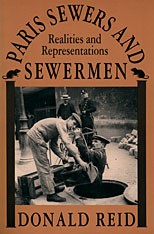
This widely acclaimed volume weaves the perspectives of science, engineering, commerce, politics, economics, and the natural world into a chronicle of the river from its earliest geologic history through its repeated adaptations to the city that grew up around it. While explaining the river’s role in massive public works, such as drainage and straightening, designed to address the infrastructure needs of a growing population, Hill focuses on the synergy between the river and the people of greater Chicago, whether they be the tribal cultures that occupied the land after glacial retreat, the first European inhabitants, or more recent residents.
In the first edition, Hill brought together years of original research and the contributions of dozens of experts to tell the Chicago River’s story up until 2000. This revised edition features discussions of disinfection, Asian carp, green strategies, the evolution of the Chicago Riverwalk, and the river’s rejuvenation. It also explores how earlier solutions to problems challenge today’s engineers, architects, environmentalists, and public policy agencies as they address contemporary issues.
Revealing the river to be a microcosm of the uneasy relationship between nature and civilization, The Chicago River offers the tools and knowledge for the city’s residents to be champions on the river’s behalf.

The expansion of the Paris sewer system during the Second Empire and Third Republic was both a technological and political triumph. The sewers themselves were an important cultural phenomenon, and the men who worked in them a source of fascination. Donald Reid shows that observing how such laborers as cesspool cleaners and sewermen present themselves and are represented by others is a way to reflect on the material and cultural foundations of everyday life.
For bourgeois urbanites, the sewer became the repository of latent anxieties about disease, disorder, and anarchy. The sewermen themselves formed a model army of labor in an era of social upheaval in the workplace. They were pioneers both in demanding the right of public servants to unionize and in securing social welfare measures. They were among the first French manual laborers to win the eight-hour day, paid vacations, and other benefits.
Reid transcends traditional categories by bringing together the infrastructure and the cultural supports of society, viewing technocracy and its achievements in technical, political and cultural terms. Historians of modern France, and Francophiles in search of the unusual, will welcome the cultural interfaces of urban history, labor history, and the history of technology his book provides. His text is enlivened by drawings and photographs of the life below Paris streets, and illuminated by references to literary sources such as Hugo's Les Miserables and Giraudoux's The Madwoman of Chaillot.
READERS
Browse our collection.
PUBLISHERS
See BiblioVault's publisher services.
STUDENT SERVICES
Files for college accessibility offices.
UChicago Accessibility Resources
home | accessibility | search | about | contact us
BiblioVault ® 2001 - 2024
The University of Chicago Press









